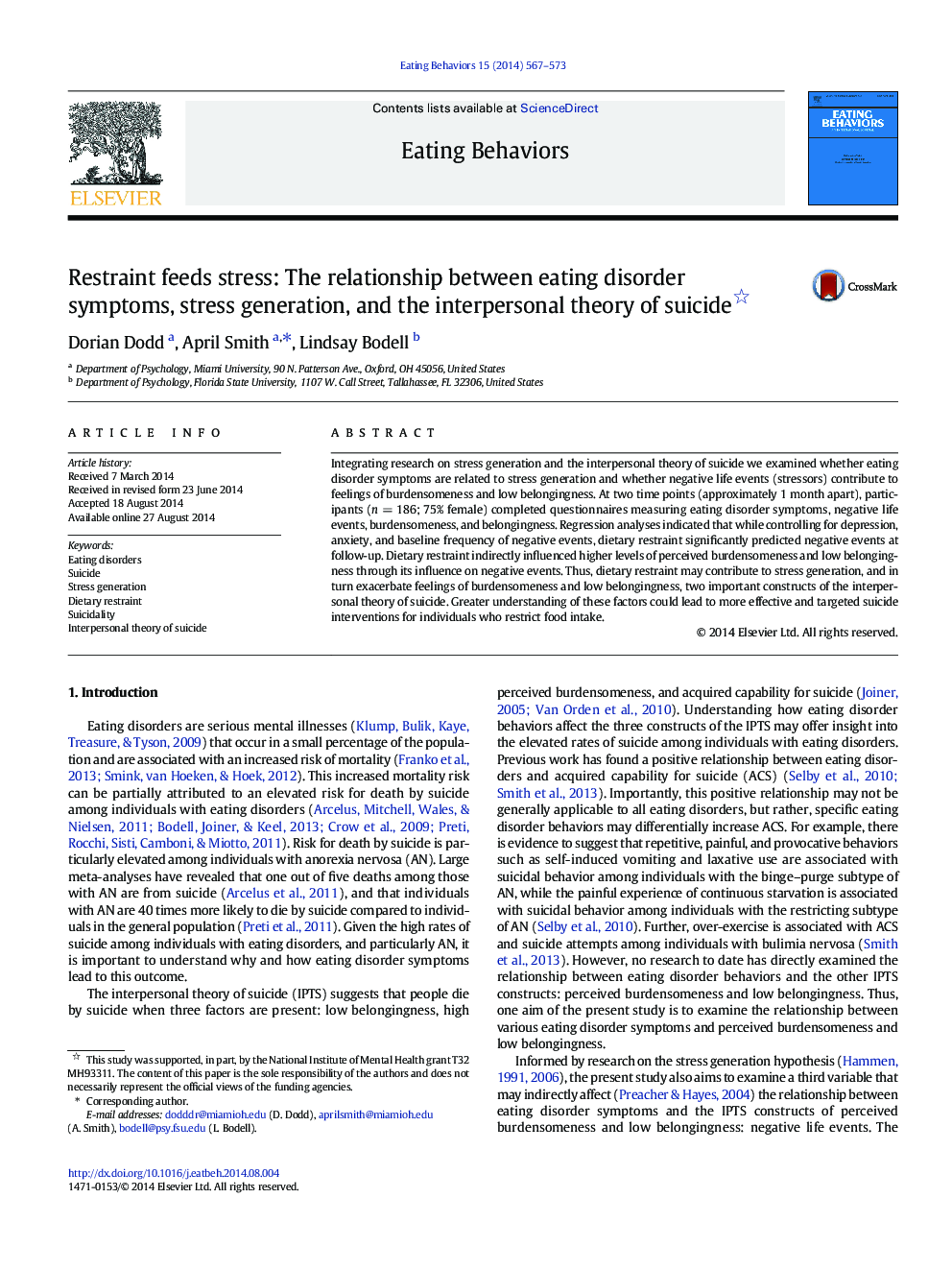| Article ID | Journal | Published Year | Pages | File Type |
|---|---|---|---|---|
| 10446861 | Eating Behaviors | 2014 | 7 Pages |
Abstract
Integrating research on stress generation and the interpersonal theory of suicide we examined whether eating disorder symptoms are related to stress generation and whether negative life events (stressors) contribute to feelings of burdensomeness and low belongingness. At two time points (approximately 1 month apart), participants (n = 186; 75% female) completed questionnaires measuring eating disorder symptoms, negative life events, burdensomeness, and belongingness. Regression analyses indicated that while controlling for depression, anxiety, and baseline frequency of negative events, dietary restraint significantly predicted negative events at follow-up. Dietary restraint indirectly influenced higher levels of perceived burdensomeness and low belongingness through its influence on negative events. Thus, dietary restraint may contribute to stress generation, and in turn exacerbate feelings of burdensomeness and low belongingness, two important constructs of the interpersonal theory of suicide. Greater understanding of these factors could lead to more effective and targeted suicide interventions for individuals who restrict food intake.
Keywords
Related Topics
Life Sciences
Neuroscience
Behavioral Neuroscience
Authors
Dorian Dodd, April Smith, Lindsay Bodell,
